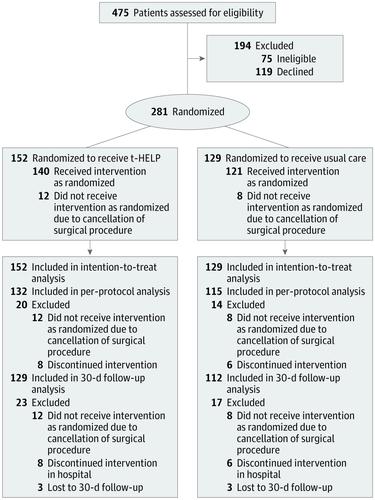当前位置:
X-MOL 学术
›
JAMA Intern. Med.
›
论文详情
Our official English website, www.x-mol.net, welcomes your feedback! (Note: you will need to create a separate account there.)
Effect of the Tailored, Family-Involved Hospital Elder Life Program on Postoperative Delirium and Function in Older Adults
JAMA Internal Medicine ( IF 39.0 ) Pub Date : 2020-01-01 , DOI: 10.1001/jamainternmed.2019.4446 Yan-Yan Wang 1, 2 , Ji-Rong Yue 1 , Dong-Mei Xie 1 , Patricia Carter 2 , Quan-Lei Li 3 , Sarah L Gartaganis 4 , Jie Chen 5 , Sharon K Inouye 4, 6
JAMA Internal Medicine ( IF 39.0 ) Pub Date : 2020-01-01 , DOI: 10.1001/jamainternmed.2019.4446 Yan-Yan Wang 1, 2 , Ji-Rong Yue 1 , Dong-Mei Xie 1 , Patricia Carter 2 , Quan-Lei Li 3 , Sarah L Gartaganis 4 , Jie Chen 5 , Sharon K Inouye 4, 6
Affiliation

|
Importance
Postoperative delirium (POD) is a common condition for older adults, contributing to their functional decline. Objective
To investigate the effectiveness of the Tailored, Family-Involved Hospital Elder Life Program (t-HELP) for preventing POD and functional decline in older patients after a noncardiac surgical procedure. Design, Setting, and Participants
A 2-arm, parallel-group, single-blind, cluster randomized clinical trial was conducted from August 24, 2015, to February 28, 2016, on 6 surgical floors (gastric, colorectal, pancreatic, biliary, thoracic, and thyroid) of West China Hospital in Chengdu, China. Eligible participants (n = 281) admitted to each of the 6 surgical floors were randomized into a nursing unit providing t-HELP (intervention group) or a nursing unit providing usual care (control group). All randomized patients were included in the intention-to-treat analyses for the primary outcome of POD incidence. Statistical analysis was performed from April 3, 2016, to December 30, 2017. Interventions
In addition to receiving usual care, all participants in the intervention group received the t-HELP protocols, which addressed each patient's risk factor profile. Besides nursing professionals, family members and paid caregivers were involved in the delivery of many of the program interventions. Main Outcomes and Measures
The primary outcome was the incidence of POD, evaluated with the Confusion Assessment Method. Secondary outcomes included the pattern of functional and cognitive changes (activities of daily living [ADLs], instrumental activities of daily living [IADLs], Short Portable Mental Status Questionnaire [SPMSQ]) from hospital admission to 30 days after discharge, and the length of hospital stay (LOS). Results
Of the 475 patients screened for eligibility, 281 (171 [60.9%] male, mean [SD] age 74.7 [5.2] years) were enrolled and randomized to receive t-HELP (n = 152) or usual care (n = 129). Postoperative delirium occurred in 4 participants (2.6%) in the intervention group and in 25 (19.4%) in the control group, with a relative risk of 0.14 (95% CI, 0.05-0.38). The number needed to treat to prevent 1 case of POD was 5.9 (95% CI, 4.2-11.1). Participants in the intervention group compared with the control group showed less decline in physical function (median [interquartile range] for ADLs: -5 [-10 to 0] vs -20 [-30 to -10]; P < .001; for IADLs: -2 [-2 to 0] vs -4 [-4 to -2]; P < .001) and cognitive function (for the SPMSQ level: 1 [0.8%] vs 8 [7.0%]; P = .009) at discharge, as well as shorter mean (SD) LOS (12.15 [3.78] days vs 16.41 [4.69] days; P < .001). Conclusions and Relevance
The findings suggest that t-HELP, with family involvement at its core, is effective in reducing POD for older patients, maintaining or improving their physical and cognitive functions, and shortening the LOS. The results of this t-HELP trial may improve generalizability and increase the implementation of this program. Trial Registration
Chinese Clinical Trial Registry Identifier: ChiCTR-POR-15006944.
更新日期:2020-01-01



























 京公网安备 11010802027423号
京公网安备 11010802027423号